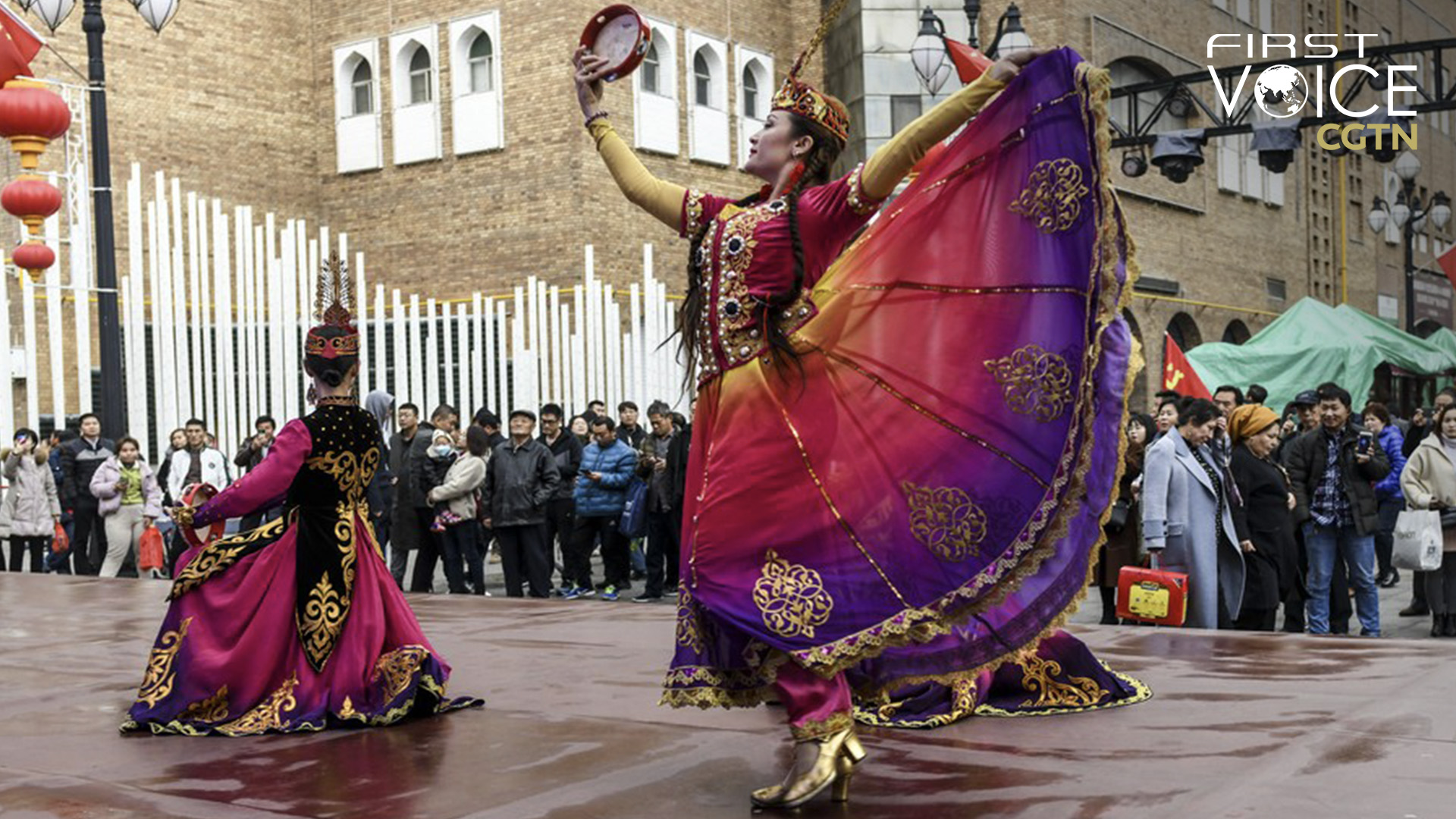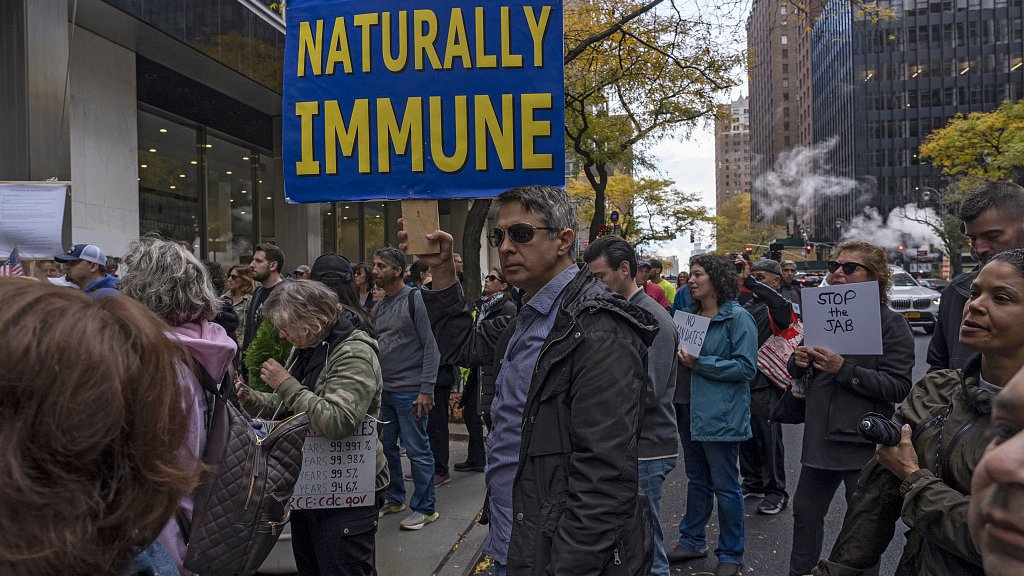
Editor's note: CGTN's First Voice provides instant commentary on breaking stories. The daily column clarifies emerging issues and better defines the news agenda, offering a Chinese perspective on the latest global events.
The U.S. political system is notoriously gridlocked. Political parties disagree on everything from what public health measures are suitable to counter COVID-19 to whether global warming represents a threat to humanity.
But there is one issue that politicians of both parties always agree on these days – China is "bad."
In this age of partisan paralysis, a bill that bans all imports from the Xinjiang Uygur Autonomous Region has passed the Congress and is on the way to the White House.
Strikingly, in this age of hyper-partisanship, the Senate version of the bill was introduced by conservative Republican Senator Marco Rubio, and the House version was introduced by Democratic Representative Jim McGovern of Massachusetts.
There is nothing like a common enemy to unite people. This becomes especially important when there are significant problems at home. And right now, the U.S. is a hot mess.
U.S. President Joe Biden's long public record shows he has had long been supportive of trade with China, welcomed China's rise, and was skeptical of Taiwan separatists.
However, this changed when being "weak on China" became political suicide.
Democrats have to jockey with Republicans to see who can appear toughest on America's new cartoon Cold War villain.
Biden has engaged in shameful acts like perpetuating his predecessor Trump's shameless smears about COVID-19 starting from a Chinese lab leak and repeating the Big Lie about a genocide taking place in Xinjiang, even though there is no concrete proof.
In this atmosphere, voting against the "Uygur Forced Labour Prevention Act" would be political suicide. No European or American company doing business in Xinjiang has ever witnessed any sign of forced labor.
Yet a number of them have pulled back from doing business in Xinjiang in response to overwhelming political pressure from the U.S.
In fact, there have been no detailed, credible allegations at all of forced labor in Xinjiang, let alone proof of genocide, another favorite U.S. smear.
Apple, for example, has been adamant that despite detailed probes of its supply chains, it has found no signs of forced labor. Nike and Coca-Cola have released similar statements.
Facts no longer matter. Sticking up for China in the current political environment is political suicide.

A man holds a placard at a city employee group's anti-COVID-19 vaccine mandate protest in front of Pfizer world headquarters in New York, U.S., November 13, 2021. /CFP
A man holds a placard at a city employee group's anti-COVID-19 vaccine mandate protest in front of Pfizer world headquarters in New York, U.S., November 13, 2021. /CFP
China was not always a "bad guy" in the U.S. imagination. That changed when the U.S. got into a mess. See America's performance when Trump botched the public health response to the pandemic.
The death toll soared to more than 800,000, eventually far exceeding the number of Americans killed in combat in every war the nation has fought since its founding.
When Trump spoke about the so-called "China virus," this distracted the public from their domestic woes.
Against the wishes of the U.S. business community, Trump declared an economic war against China.
On camera, this made Trump appear tough and as if he was sticking up for American workers. American workers cheered the effort, believing someone was finally sticking up for them.
In reality, the woes of U.S. workers are not because of trade with China. The U.S. has generated incredible wealth by outsourcing manufacturing to China.
But these profits have gone straight into the pockets of corporations and elites and have been not shared with workers and the general public.
This is a problem with U.S. policy, not China trade.
U.S. economists say the trade war actually hurt average Americans by driving up the prices of consumer goods while actually costing more jobs than were created.
But Trump's anti-China tirades were some of the most popular parts of his rallies. The U.S. public, reeling from the COVID-19 pandemic and economic stagnation, welcomed a new enemy to blame for its woes.
Hating China became "good politics." Blaming the outsider has been a winning political tactic since the dawn of history.
(If you want to contribute and have specific expertise, please contact us at opinions@cgtn.com.)

